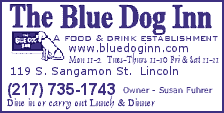|
 That move came as U.S. officials wrapped up a visit that coincided with the recall of nearly 1 million Chinese-produced toys tainted with lead paint. That move came as U.S. officials wrapped up a visit that coincided with the recall of nearly 1 million Chinese-produced toys tainted with lead paint.
U.S. health officials visited Beijing this week to work on agreements to improve safety of food, animal feed, drugs and medical devices amid a flurry of recalls or warnings about Chinese-made goods in the United States and elsewhere.
The two sides will work more closely on product safety and would seek to sign cooperation agreements as soon as possible, according to statements from China's General Administration for Quality Supervision, Inspection and Quarantine and the U.S. Department of Health and Human Services.
"Our vision ... aims to increase cooperation and information-sharing between the U.S. and Chinese governments on these safety issues," Mike Leavitt, the U.S. secretary of health and human services, said in his agency's statement issued late Thursday.
Officials would meet again this month in Beijing, he said. The U.S. delegation was led by Leavitt's chief of staff, Rich McKeown.

A spokesman for the health department, Bill Hall, said the U.S. hoped to complete draft cooperation agreements by December but declined to provide any additional details of the talks.
U.S. toy manufacturer Fisher-Price Inc. announced Wednesday that it was recalling 83 types of toys made with lead paint. They included the popular Big Bird, Elmo, Dora and Diego characters.
Fears were triggered earlier this year after a Chinese-made ingredient in pet food was linked to the deaths of cat and dogs in North America.
Since then, Chinese goods ranging from toothpaste to tires have been banned or recalled in numerous countries.
The United States has blocked imports of five types of farmed seafood from China that were found to contain unapproved drugs.
[to top of second column]
 |
 The Health and Human Services delegation offered "technical assistance" to China's quality watchdog "to address systemic problems related to safety of these products," Leavitt's statement said, without giving details.
U.S. officials also offered to provide information on how Chinese exporters can show they are obeying safety requirements.
The General Administration for Quality Supervision, Inspection and Quarantine said on its
online site that talks touched on the U.S. seafood ban. The agency said the meetings were "friendly."
China has acknowledged safety problems, but says other countries face similar challenges and insists its products should not be unfairly singled out. Commerce Minister Bo Xilai has said 99 percent of China's exports are safe.
On Friday, the state-run China Daily newspaper quoted an official at a Ministry of Agriculture vegetable testing center as saying consumers have no reason to worry about food safety.
"The compliance rate of vegetables to the national standards has improved greatly," Liu Su, the center's deputy director, was quoted as saying.
Tests for chemical residues show that the rate of qualified vegetables rose from 82 percent in 2003 to 93 percent last year, the paper said.

But also Friday, China Daily reported that 17 more members of a gang accused of making fake rabies vaccine out of starch and water have been detained in China's northeast. Another 17 people were detained earlier.
A total of 227 people received the fake vaccine, the report said.
[Associated Press;
by Anita Chang]
Copyright 2007 The Associated Press. All rights reserved. This
material may not be published, broadcast, rewritten or
redistributed. |